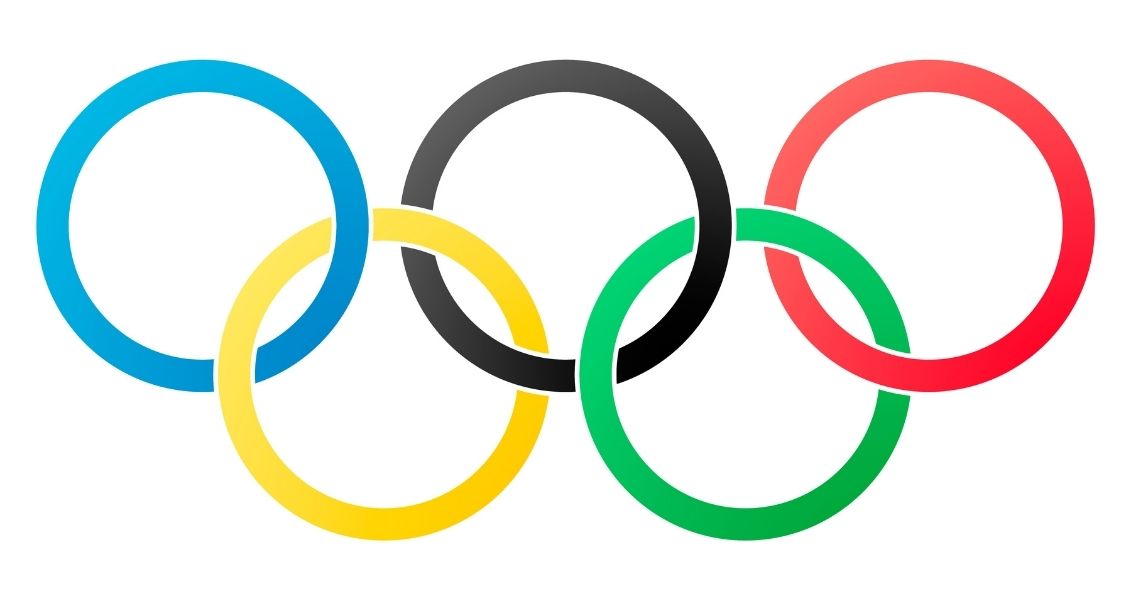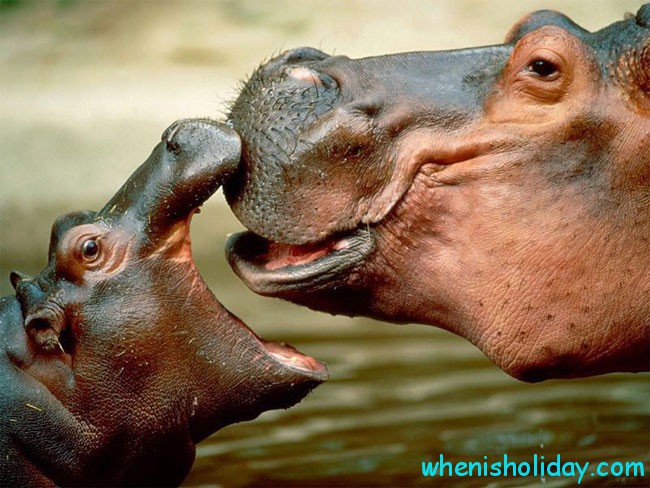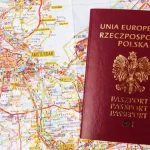International Olympic Day
What day is it?
The Olympic Games are the most important sporting events, but they only happen once every four years. However, there is a holiday that invites absolutely everyone to show their activity on the way to good health and well-being. It International Olympic Day, to participate in which you do not need to be an athlete and set records. The International Olympic Day was introduced in honor of the return of the Olympic movement to the modern world through the creation of the International Olympic Committee. This event takes place on June 23 every year and is designed to attract as many people as possible to the sport around the world.
How did the idea of celebrating the International Olympic Day come about?
Where and when in history people first organized sports competitions remains a matter of debate, but it is safe to say that several thousand years ago such competitions were already held in Greece. According to myths, they were founded by Heracles himself, the son of Zeus. There are records of at least four major sporting events of the time—the Pythian Games at Delphi, the Nemean Games in the Nemean Valley, the Isthmian Games near Corinth, and the Olympic Games proper—at Olympia, which was the most famous of all. Greek historians even measured the time between these games, which took place once every four years.
The first Olympic champion entered into the list of records was a cook named Corobus, who won a sprint race in 776 BC. With each subsequent game, new types of competitions were added, for example, in 708 BC, pentathlon appeared – wrestling, running, long jump, javelin and discus. Later, fistfights and chariot races were added. Usually, the games lasted four days, and on the fifth, a closing ceremony, awarding of champions and a banquet were held.
Only free citizens were allowed to compete in the Olympics. Most of them can be considered professional athletes, as they have been preparing for competitions on a regular basis. And although the only prize of the winner in Olympia was an honorary wreath, Olympic champions received wide recognition and certain preferences in their hometowns.
This continued until Greece came under the rule of Rome. Games in Olympia and other cities began to decline, because public competitions, moreover, in a naked form, as the Greeks used to do, seemed humiliating to the Romans. Eventually, in the 390s AD, Emperor Theodosius I canceled the Olympic Games altogether because of their pagan associations.
Pierre de Coubertin
The revival of the Olympic movement is associated with the name of Baron Pierre de Coubertin, a French aristocrat born in Paris. Family traditions prepared him for a military or political career, but the young man decided that his vocation was work with young people, in particular, physical education. At that time, the press regularly reported on archaeological finds in the Greek Olympia, and this inspired de Coubertin with the idea of a possible revival of the Olympic Games and the subsequent introduction of sports in French schools.
In 1892, at a meeting of the Union of French Sports Societies in Paris, Pierre de Coubertin presented a project for organizing the Olympics and asked for help from those present. Then this performance did not gain support, but de Coubertin did not give up and at the Conference on International Sports in 1894 again made his proposal. Among the 79 delegates, there were few who were seriously interested in it, but all unanimously voted for the resumption of the Olympic competitions. Control over this process was placed on the shoulders of the newly created International Olympic Committee.
“Citius, Altius, Fortius”
13 people became members of the organization, and the president had to change after each Olympics. Since the first games were to be held in Greece, Demetrios Vikelas, a wealthy Greek businessman living in Paris, became the president. At the same time, the famous motto of all Olympiads was adopted – “Citius, Altius, Fortius” (faster, higher, stronger). The first Olympic Games took place 2 years later – in Athens in April 1896.
In 1947, during the Stockholm session of the IOC, Josef Gruss, a delegate from Czechoslovakia, presented the idea of holding the International Olympic Day, which was aimed at popularizing the sports movement in all countries. The following year, at the January conference in St. Moritz, Switzerland, the idea was adopted. The National Olympic Committees were entrusted with the organization of this event, and the date was chosen on June 23 – in memory of the day in 1894, when Pierre de Coubertin achieved the return of the Olympic traditions to the world.
International Olympic Day
For the first time International Olympic Day was celebrated on June 23, 1948. On this occasion, the then president of the IOC, Siegfried Edström, sent an appeal to the youth of the world, and Greece, Portugal, Canada, Austria, Sweden, Great Britain, Belgium, Venezuela and Uruguay joined the first celebration.
Today, International Olympic Day is about more than just sporting events. Based on the three main principles – “move”, “learn” and “discover”, the National Olympic Committees also conduct cultural and educational events, for example, concerts and exhibitions, designed for everyone, regardless of age, gender and sports ability.
Some countries have included this day in the school curriculum. Websites are also being developed to direct people to activities available where they live. All this makes it easier to join the celebration of this event, including thanks to the development of social networks, which expand the number of participants even beyond the boundaries of the activities of the National Olympic Committees.
International Olympic Day in history
-
1894
June 23The International Olympic Committee (IOC) was founded. -
1896The Greek capital of Athens hosted the first Olympic Games of the modern era.
-
1908The Olympic Charter was published in its first edition. Baron Pierre de Coubertin was the author of its rules and norms.
-
1948
June 23Holding of the first International Olympic Day in the history by nine countries. -
1978The International Olympic Day was included in the Olympic Charter. Since then, on the recommendation of the IOC, all National Olympic Committees have to hold this day annually to promote the Olympic Movement.
-
1987The IOC launched the “Olympic Day of Running” campaign, the number of participants of which is currently about 160 National Olympic Committees.
Frequent Questions and answers on International Olympic Day
This slogan was coined and used in youth sports by a French preacher from the Dominican order, as well as a teacher and keen athlete, Henri Didon, who was a close friend of Pierre de Coubertin. Coubertin proposed this motto in 1894 to the newly formed International Olympic Committee.
This emblem was invented by Pierre de Coubertin. The rings represent the 5 inhabited continents of the world, and their colors – blue, black, yellow, green and red – were chosen because the flag of every country in the world contains at least one of these primary colors.
Since 1952, Ukrainian athletes as part of the Soviet Union team have competed in all the Olympics. Over the decades, almost a quarter of the Soviet national team consisted of Ukrainians. In 1993, the National Olympic Committee of our already independent country was recognized by the IOC.
This event is held in various countries by the National Olympic Committees as an amateur race for everyone, regardless of age and physical fitness. Running distances are 1.5; 5 and 10 kilometers, and this event takes place annually from June 17 to 24.
Such sports include tug-of-war and rope climbing, hot air ballooning, dueling pistol competitions, tandem cycling, and obstacle course swimming. Pigeon shooting, which was part of the Olympics program only once in 1900, was also excluded.
How to celebrate International Olympic Day?
Usually, on this day in Ukraine, various amateur sports competitions are held in educational institutions, territorial communities, and sports institutions. These are traditional races, relay races, jumping competitions, pull-ups, weight lifting, shooting and other sports. Anyone can participate in such competitions, for example, within the boundaries of their school or community.
IN International Olympic Day TV channels, especially sports ones, dedicate special programs and reports from the venues of mass events to this event. You can also learn more about the sources and traditions of the Olympic Movement in our country and abroad from the informational materials on June 23. As for schoolchildren and students, they can count on meetings with famous athletes, which are organized by educational institutions before this holiday.
At the global level of the IOC in 2020, the celebration of the International Olympic Day was held online, that is, in the form of the world’s largest 24-hour home training using digital technologies. The most famous athletes – champions of the Olympiads of different years – acted as coaches.
It is worth sharing information about this international event with friends – in real life and on social networks. And the most important thing is that on this day, the younger generation, especially children, should be involved in sports, because it is known that good habits are formed more easily at a young age.
Why is this day important?
This event emphasizes the importance of sports for every person, because it is a great way to keep your body in good shape. In addition, sports habits teach discipline, and communication within the framework of sports training and competitions contributes to new acquaintances with interesting people. Team sports in general develop a sense of team, social interaction skills, help to find friends.
Athletes are always good role models for children and youth, and playing sports for the younger generation means not only growing healthier people, but also a lower risk of juvenile delinquency. Sports also have a positive effect on the psychological sphere – like any regular physical activity, it can relieve stress, anxiety and depression, increase concentration and self-confidence.
So International Olympic Day important primarily because it motivates us to get up from the sofa and finally start online training, go for a morning run or visit the nearest sports ground with the children. With such actions, we will help ourselves to preserve physical and mental health for a long time.
When will we celebrate International Olympic Day??
| Year | Date | Weekday |
|---|---|---|
| 2021 | June 23 | Wednesday |
| 2022 | June 23 | Thursday |
| 2023 | June 23 | Friday |
| 2024 | June 23 | Sunday |
| 2025 | June 23 | Monday |



































